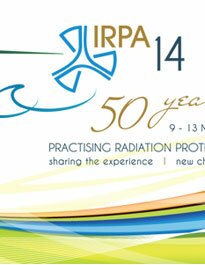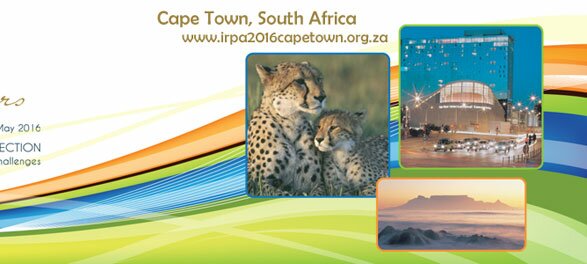 |
|
 |
General Information
Statement by Home Affairs on Concessions on Immigration Regulations affecting travel to South Africa
- CLICK HERE
Travel Advisory
Important Notice
- Passengers travelling to South Africa must be in possession of a passport with two unused pages required for endorsements. The two unused pages when presented for purposes of endorsing a port of entry visa, visa, permanent residence permit or entry of departure stamp.
- The passport must be machine readable however, the foreigner may be admitted into or depart from South Africa with a non-machine readable passport provided that:
- He or she is from a foreign country that is issuing machine readable passports and has not completely phased out the non-machine readable passports; and
- His or her passport was issued after 24 November 2005 and its date of expiry is before 24 November 2015.
Travelling with ChildrenPlease note that a number of changes have been made to the South African Immigration Act with regard to travelling with children. In brief the following regulations will now be applicable from the 01st of June 2015:
- Any child who is in alternative care as defined in the Children's Act, shall, before departing from South Africa, produce a certified copy of an authorisation letter from the Provincial Head of the Department where the child resided as contemplated in Section 169 of the Children's Act.
- An immigration officer shall refuse any person who does not comply permission to depart from South Africa.
- Where parents are travelling with a child, the parents need to produce an unabridged birth certificate and a valid Passport for the child reflecting both parents’ particulars.
- Where one parent is travelling with a child, he or she must produce an unabridged birth certificate, a valid Passport and consent in the form of:
- an affidavit from the other parent registered as a parent on the child’s birth certificate authorizing him or her to enter into or depart from South Africa with the child.
- A court order granting full parental responsibilities and rights or legal guardianship in respect of the child, if he or she is the parent or legal guardian of the child, or
- Where applicable, a death certificate of the other parent registered as a parent of the child on the birth certificate.
- Where a person is travelling with a child who is not his or her biological child, he or she must produce:
- A copy of the unabridged birth certificate of the child
- A valid Passport
- An affidavit from the parents or legal guardian of the child confirming that he or she has permission to travel with the child.
- Copies of the identity documents or passports of the parents or legal guardian of the child and
- The contact details of the parents or legal guardian of the child.
Parental Consent Affidavit:The Affidavit must not be older than 4 months when presented. The same affidavit will still be valid for the departure or return in relation to the same journey regardless of the period of the journey.
A suggested format of the Parental Consent Affidavit is available at:
http://www.dha.gov.za/files/ParentalConsentAffidavit.pdf
Unabridged Birth Certificate:In the case of countries that do not issue UBCs, an 'Equivalent Document' containing the particulars of the child and his or her parent or parents, issued by the competent authority of that country, or an embassy of that country may be used instead of an UBC.
A suggested format for such an Equivalent Document is available at:
http://www.dha.gov.za/files/EquivalentDocumentForeignGov.pdf
For more information, please click on the following link:
http://www.home-affairs.gov.za/index.php/statements-speeches/621-advisory-new-requirements-for-children-travelling-through-south-african-ports-of-entry-effective-1-june-2015
Cape TownCape Town is the quintessential melting pot: it is a city alive with creativity, colour, sounds and tastes.
While walking through the City's streets and meeting its people, you will fall in love with its natural beauty, creative freedom and incredible spirit. Cape Town is a city where the unexpected is always just around the corner and the beautiful province of the Western Cape lies ready to be explored across the city border.
Accommodation is available to suit all tastes and budgets, from luxury five star establishments to modest guesthouses and bed and breakfasts. These have been pre-booked for the Congress and delegates will be able to secure their choice of venue at preferential rates through the Congress organisers.
A wide range of attractive tours and excursions will be on offer to visitors and these will be of a cultural, historical and geographical nature. From townships to wildlife reserves, shopping malls to vineyards, there will be something to delight everyone.
We encourage you to participate on one of the arranged optional excursions. The experience will be unforgettable.
Currency and BanksThe unit of currency in South Africa is the South African Rand (ZAR) and is indicated with a capital R so that, for example, three Rand and fifty cents would be written R3.50. South Africa has a decimal currency system with one Rand equalling 100 cents. Denomination of Rand notes are R200, R100, R50, R20, and R10 and of the coins are R5, R2, R1, 50c, 20c, 10c and 5c.
The following exchange rates were applicable at date of printing this document:
|
1 United States Dollar = ZAR 12.40
|
1 Euro = ZAR 13.20
|
Facilities for cashing traveller's cheques are available at banks (operating hours are Monday - Friday 09h00 - 15h30, Saturdays 08h30 - 11h00) and at most hotels. Banks are closed on Sundays. Foreign exchange agencies are open during the week and on Saturdays. Automatic teller machines (ATM) are open 24 hours and are located at most banks as well as at the Congress Venue. International credit cards (Visa, Diners Club, MasterCard and American Express) are accepted at the majority of hotels, restaurants and shops.
Electricity SupplyThe electricity supply in South Africa is 220 - 240 volts, 50 Hz. The connection for appliances is a round three-pin plug. Most hotels provide dual-voltage two-pin razor sockets (100-120 volts and 220-240 volts).
HealthThere are no compulsory vaccination requirements for persons entering South Africa although a certificate for yellow fever may be required if you are entering from certain South American or sub-Saharan African countries. Certain parts of the country have been designated as malaria risk areas. If you intend travelling to one of these areas, it is essential that you take prophylaxis before arrival and whilst in the area. Protective clothing and insect repellents should also be used. Cape Town is a malaria risk free area. South African doctors and dentists are highly trained professionals and hospitals are well equipped. Participants are requested to make their own arrangements with respect to health insurance prior to departure and consult their local general practitioner for personal expert advice. For international travel and health advisories please visit the WHO website at www.who.int/ith or www.cdc.org. It is safe to drink tap water throughout South Africa. However, for those who prefer bottled mineral water, this is readily available in various stores. Smoking is prohibited by law in most public buildings in South Africa (airports, Cape Town International Convention Centre, restaurants etc.) except in designated smoking areas.
InsuranceThe 14th International Congress of the International Radiation Protection Association accepts no liability for any personal injury, loss or damage of property belonging to or additional expenses incurred by congress participants either during the congress or as result of delays, strikes or any other circumstances. Participants are requested to make their own arrangements with respect of health, travel and cancellation insurance.
LanguageThe official Congress language will be English.
LunchLunches will be included in the participants´ registration fee. Please note that any special catering requirements must be specified when registering and may incur an additional charge.
Passports and VisasEvery visitor to South Africa must have a valid passport. Passport holders from more than 80 countries, including USA, Canada, UK, Japan and the EU can visit South Africa without a visa. Information regarding visas can be obtained from your travel agent or the South African diplomatic or consular representative in your area. Passports should have at least 2 completely empty pages otherwise entry may be denied. Passports must be valid for at least 6 months after your intended date of departure. Delegates requiring visas, and who intend taking tours to neighbouring Southern African countries, are advised to secure a multiple entry visa. Tourists must satisfy immigration officers that they have the means of support for the duration of their stay in the country and return /onward tickets. Visas cannot be obtained on arrival. A list of countries that currently do not require a visa can be found at the SA Government website:
http://www.home-affairs.gov.za/index.php/immigration-services/apply-for-a-south-african-visa.
If required, upon request, the Congress Secretariat is willing to send you a letter of invitation. It should be understood that this letter will be sent only to help participants to raise travel funds or to obtain a visa. A letter of invitation is not a commitment on the part of the organisers to provide any financial support. Please note that only registered delegates who have paid their Congress registration fees will be issued with a letter of invitation.
Price Guidelines (for illustration purposes only)Prices will vary, but the following is an indication of what delegates might expect to pay:
| Tea or coffee |
ZAR 15.00
|
€ 1 .10
|
US$ 1.40
|
| Restaurant meal |
ZAR 200.00
|
€ 15.00
|
US$ 18.00
|
| Cinema ticket |
ZAR 60.00
|
€ 4.30
|
US$ 5.50
|
| Wine (750ml) |
ZAR 50.00
|
€ 3.57
|
US$ 4.55
|
| Big Mac Burger |
ZAR 30.00
|
€ 2.15
|
US$ 2.70
|
| Beer (340ml) |
ZAR 20.00
|
€ 1.43
|
US$ 1.80
|
| Cola (340ml) |
ZAR 10.00
|
€ 0.74
|
US$ 1.00
|
| Sandwich |
ZAR 30.00
|
€ 2.15
|
US$ 2.70
|
Programme ChangesThe organisers cannot assume liability for any changes in the programme due to external or unforeseen circumstances. Changes will be mentioned on message screens throughout the Congress Centre.
Registration HoursThe registration desk in the CTICC will be open at the following hours:
| Sunday |
8 May 2016
|
14h00 - 19h00
|
| Monday |
9 May 2016
|
08h00 - 18h00
|
| Tuesday |
10 May 2016
|
08h00 - 18h00
|
| Wednesday |
11 May 2016
|
08h00 - 17h30
|
| Thursday |
12 May 2016
|
08h00 - 17h30
|
| Friday |
13 May 2016
|
08h00 - 12h00
|
Safety and SecurityFor those participants who have not previously visited South Africa, or Cape Town, and are concerned about personal safety, we wish to assure all visitors that Cape Town is like any other major city with good and bad areas. Common sense will ensure a trouble free and enjoyable congress and vacation. The area around the CTICC and adjacent hotels is safe and well monitored at all times but we advise that you do not walk alone after dark in unpopulated streets. Ostentatious displays of wealth should be avoided at all times. During the congress, the information desk at the CTICC and your hotel's concierge will be able to assist you with information on places to visit and the appropriate means of transport.
Shopping in Cape TownMost shops in the city centre and suburbs open between 08h00 and 17h00 to 17h30. Shops in major shopping malls open at 09h00 and close at 21h00 or later (especially at the V&A Waterfront), even on Sundays and most public holidays. Government agencies still keep to traditional weekday only hours. Most banks close at 15h30, and have limited Saturday morning opening times. Muslim-owned businesses close at noon on Fridays and re-open at 13h00.
TippingGratuities are not obligatory but are expected in South Africa. A guideline for visitors is the following: Airport porters ZAR 5 per item, taxis 10%, waiters and waitresses in restaurants 10%.
Trade ExhibitionA commercial exhibition of radiation safety related items and technical equipment will be organised during the congress. Interested companies please contact the Exhibition Organiser for further information at:
Name: Catherine Taylor, Turners Conferences Tel.: +27 031 368 8000 Fax: +27 031 368 6623 E-mail: [email protected]
Traveller's ChequesMost international traveller's cheques are accepted, provided they are in an acceptable currency and may be cashed at most banks. Many hotels and shops also provide this service. Please note that Credit Cards or Cash are generally a more acceptable form of payment.
VAT / Tax RefundsVAT of 14% is levied on nearly all goods and services. Foreign tourists may claim back VAT paid on goods or products (not services) that will be taken out of the country. Original tax invoices, foreign passport, plus all the items on which a refund is claimed, must be presented at the VAT Refund Administration Office or an appointed RSA Customs and Excise Official on departure, and the total VAT on these items will be refunded.
Venue and DatesCape Town International Conference Centre (CTICC), 9 - 13 May 2016.
Located in the hub of the city's beautiful northern foreshore, the Cape Town International Convention Centre is a cosmopolitan showcase where ideas and cultures from around the globe are able to meet and mingle against the stunning backdrop of Table Mountain. World-class standards and specifications mean that the CTICC is not only designed to meet any conference or event expectation, but also ensures the experience as a whole is an unforgettable one.
Two auditoria with superb acoustics, top-of-the-range technology, and ergonomically designed seats featuring writing tablets, provide ideal venues for large formal gatherings, lectures, awards evenings or even theatre productions. Spacious and subdivisible, meeting rooms of varying sizes, can be set up to suit a variety of functions or presentations.
For more detailed information please visit www.cticc.co.za.
WeatherMay marks the beginning of winter in Cape Town. Cape Town sunrise time in May is around 07h30 and sunset is around 18h00. The rainfall and temperature for May: Average daily maximum temperature: 20 degrees Celsius Average daily minimum temperature: 10 degrees Celsius The Western Cape gets most of its rain in winter with quite a few days of cloudy, rainy weather however these days are always interspersed with wonderful days. Average monthly rainfall 69 mm (2.72 inches)
Register your InterestTo register your interest in the 14th International Congress of the International Radiation Protection Association, please go online complete the online form.
We will then send you newsletters and information on the progress and development of the Congress.
|
|
 |

















